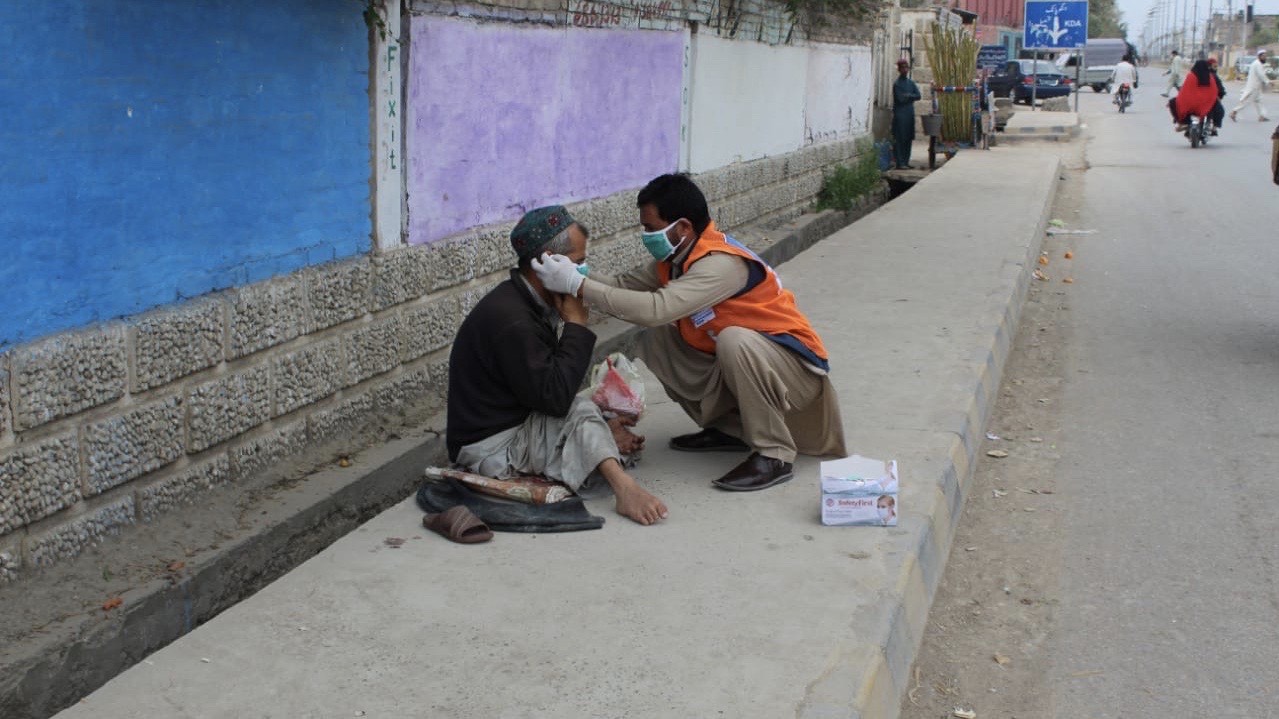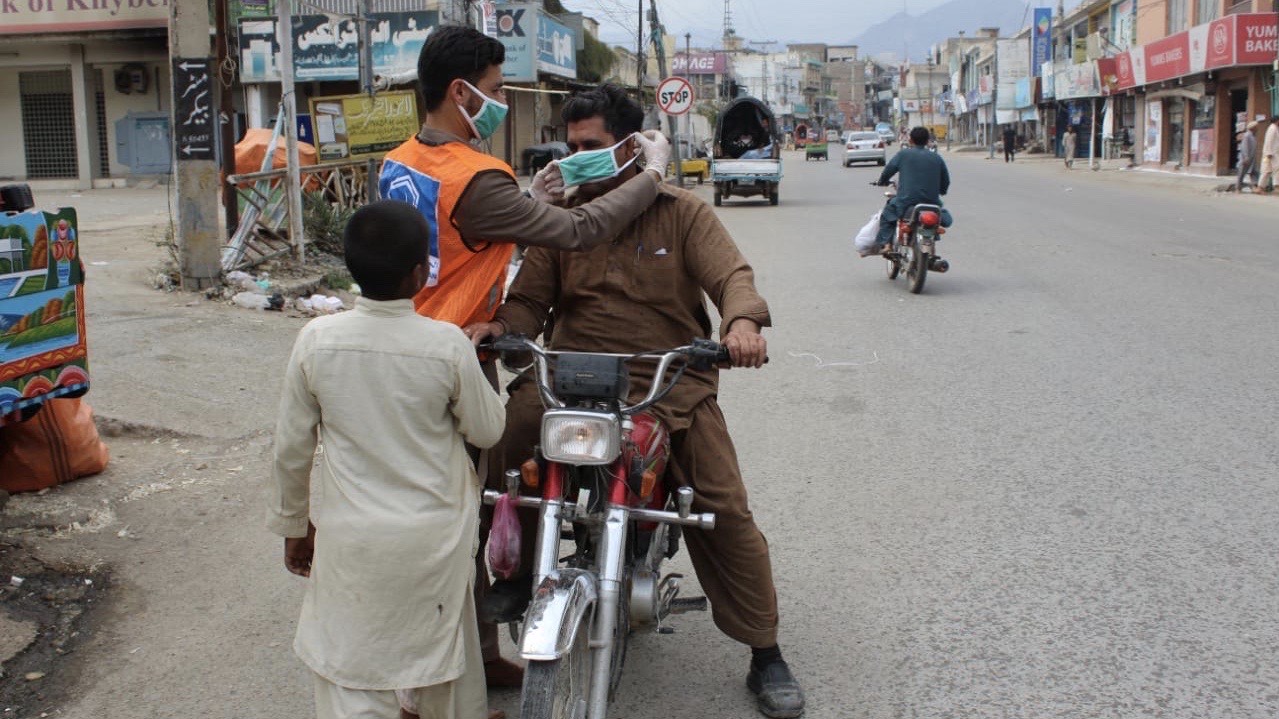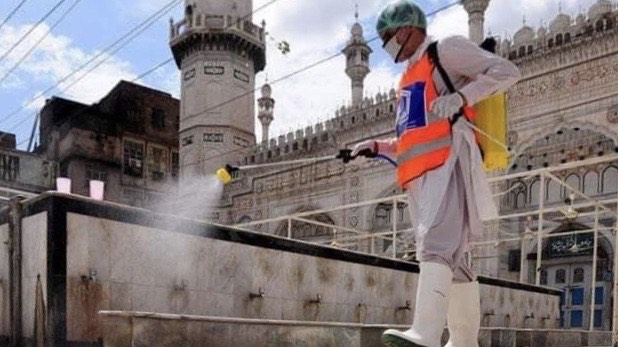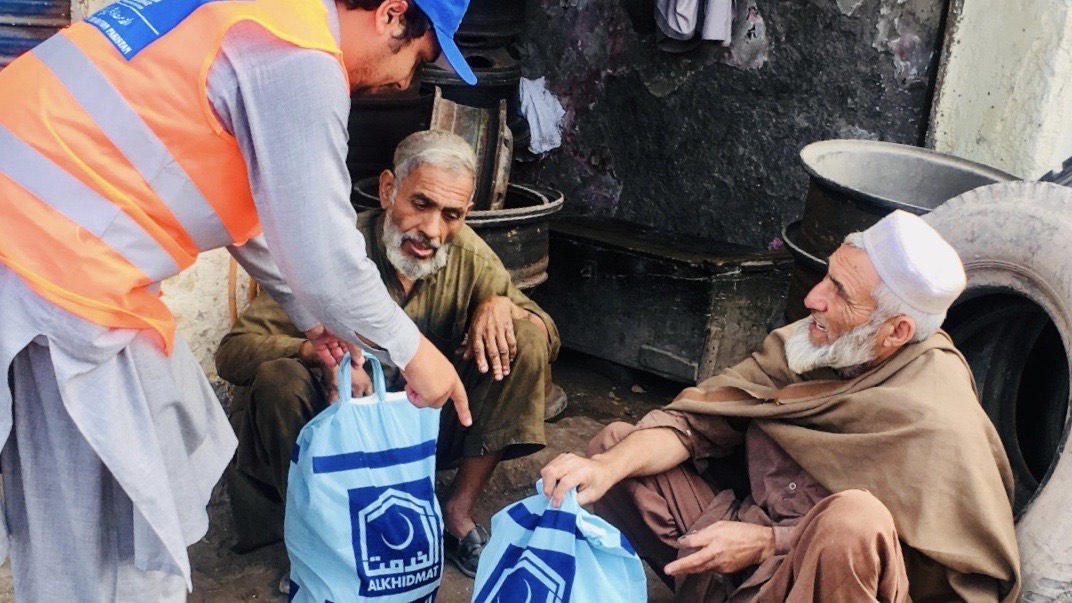PESHAWAR: As local charities around Pakistan spring into action to deal with the fallout of coronavirus lockdowns on the poorest populations, one of the country’s largest charity organizations which is heavily funded by expat donors in the gulf countries, has taken the lead in countering the outbreak.

A volunteer helps a physically challenged man with his face mask in Peshawar on April 24, 2020. (Photo courtesy: Alkhidmat Foundation)
The Alkhidmat Foundation is a non-profit, non-government organization providing humanitarian services around the country, with international operations in Bangladesh, Syria, Indonesia, Malaysia, Nepal and Myanmar. The organization receives large donations from Pakistani expats abroad-- a large number of who reside in the gulf countries.
“Our quality services regardless of color, race and religion have established great trust in our donors. Besides expats in the Middle East, Europe and the West, we have a large number of generous donors from the Kingdom of Saudia Arabia, Kuwait, UAE and other gulf countries that help in the smooth running of our assistance services round the year,” said Khalid Waqas, president of Alkhidmat Foundation’s provincial chapter in northwestern Khyber Pakhtunkhwa province.

A volunteer is helping a motorcycle rider in putting on a face mask. The Alkhidmat Foundation provided 400,000 free masks in different areas of Pakistan on March 23, 2020. (Photo courtesy: Alkhidmat Foundation)
After the first cases of coronavirus were confirmed in Pakistan, he said the organization canceled all its routine activities and shifted focus primarily on countering the outbreak. Currently, there are over 2,700 cases reported with a fatality count of 41 people.
“All provincial teams were activated and three task forces were formed to oversee the main activities of awareness, prevention and providing mutual support to the government of Pakistan,” he said.
Since the organization’s humanitarian services for coronavirus began on March 18 at the police services hospital in Peshawar, Alkhidmat’s work has greatly increased over recent weeks especially as lockdowns are enforced across the country.

A volunteer sprays disinfectant in the historical Masjid Muhabat Khan before the lockdown in Peshawar on March 22, 2020. (Photo courtesy: Alkhidmat Foundation)
Until the end of last month,100,000 ready-to-eat food packages, including 27,650 in KP alone, were distributed to families of quarantined Covid-19 patients across Pakistan.
“Ration packs, each costing an average of Rs3000 ($18) were distributed among 105,000 families across the country. Each package could provide food for a family of eight persons for 15 days,” Waqas said.
Besides food assistance, Alkhidmat Foundation has also provided 400,000 face masks and 200,000 hand sanitizers through a huge volunteer force of more than 20,000 people, he added.

Alkhidmat Foundation volunteer giving ration packs to two elderly daily wagers in a Peshawar suburb on March 24, 2020. (Photo courtesy: Alkhidmat Foundation)
Furthermore, he said, 1,650 mosques, churches, mandirs and gurdwaras were sprayed with disinfectants and provided with soaps. The total cost of these operations has been Rs450 million, and have directly benefited 1.8 million people in the province.
Founded in 1990, the Alkhidmat Foundation works in different humanitarian sectors with hospitals, orphanages and schools and has offered the Pakistan government free use of its infrastructure facilities across the country.
“We upgraded our three hospitals in Peshawar, Mardan and Charsadda by installing 15 additional ventilators and other medical equipment for monitoring coronavirus patients,” Waqas said.
“These hospitals and five orphanages, by the name of Aghosh centers, providing 860-bed capacity are offered to the government for use as treatment and quarantine centers.”



















